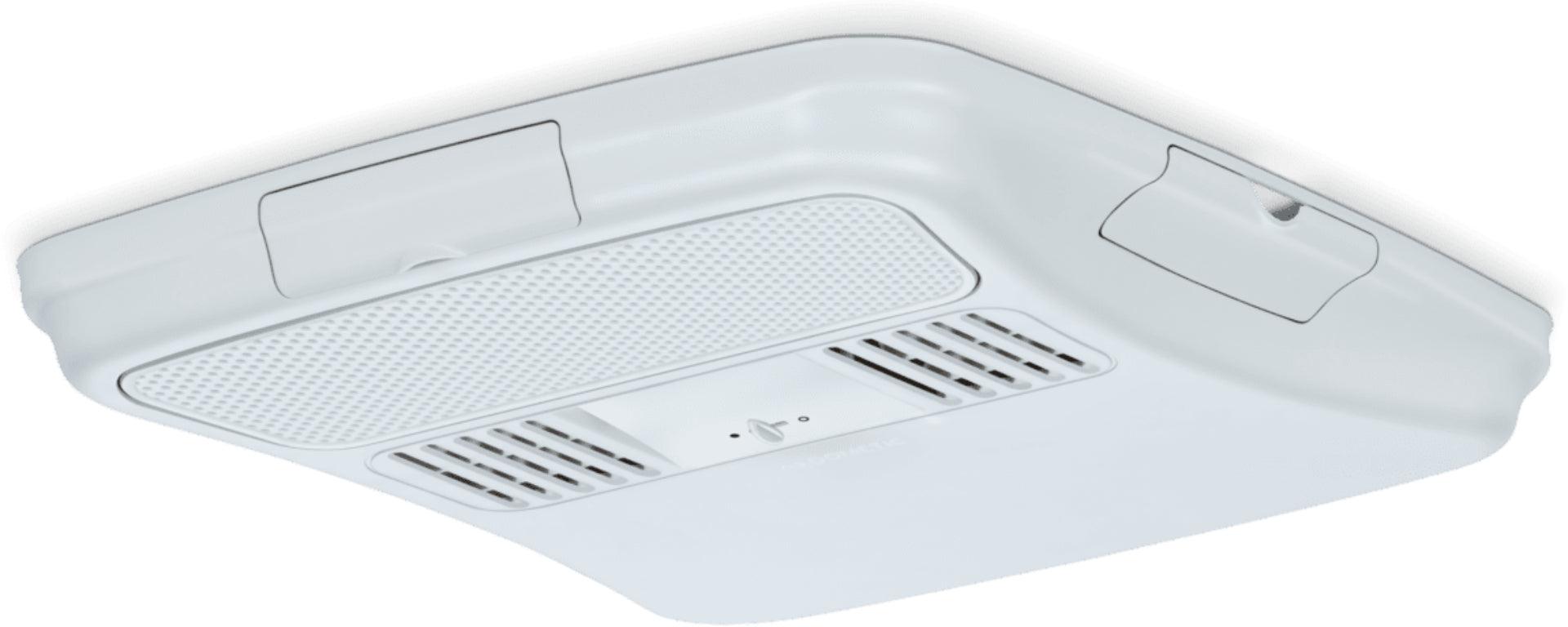If you're looking to purchase an RV air conditioner, one of the biggest decisions you'll need to make is whether to go with a ducted or non-ducted system.
Both types of RV air conditioners have their own advantages and disadvantages, so it's important to understand the differences before making your decision.
In this blog post, we'll explore the differences between ducted and non-ducted RV air conditioners and help you determine which one is right for you.
What is a Ducted RV Air Conditioner?
A ducted RV air conditioner is a centralized cooling system that distributes cool air throughout your RV using a network of ducts. The air conditioner unit is typically located on the roof of the RV, and the cool air is pushed through the ducts to vents located throughout the RV.
Ducted RV air conditioners are often more powerful than non-ducted systems, which allows them to cool larger RVs more effectively. They're also generally quieter than non-ducted systems since the unit is located on the roof and not inside the RV.
One potential drawback of ducted systems is that they can be more expensive to install since they require ductwork and vents to be installed throughout the RV. They also may be more difficult to maintain since the ducts need to be cleaned periodically to prevent blockages.
What is a Non-Ducted RV Air Conditioner?
A non-ducted RV air conditioner, also known as a "portable" or "window" air conditioner, is a standalone unit that is typically installed in a window or wall of the RV. These air conditioners are much smaller and less powerful than ducted systems and are generally only capable of cooling smaller RVs.
One advantage of non-ducted systems is that they are generally less expensive to install than ducted systems since they don't require any ductwork or vents. They're also typically easier to maintain since the unit is easily accessible for cleaning and repairs.
However, non-ducted systems can be noisier than ducted systems since the unit is located inside the RV. They also may not distribute cool air as evenly throughout the RV as a ducted system since the unit is only able to cool the immediate area around it.
Which RV Air Conditioner is Right for You?
The type of RV air conditioner that's right for you will depend on a variety of factors, including the size of your RV, your budget, and your personal preferences.
If you have a larger RV or you plan on traveling to hot climates, a ducted RV air conditioner may be the better choice since it's more powerful and can cool a larger area more effectively. However, if you have a smaller RV or you're on a budget, a non-ducted system may be a more practical choice since it's less expensive to install and maintain.
If you're concerned about noise levels, a ducted system may be the better choice since it's generally quieter than a non-ducted system. However, if you want the flexibility of being able to move the unit around the RV or use it outside, a non-ducted system may be more practical.
Ultimately, the decision between a ducted and non-ducted RV air conditioner will come down to your personal preferences and needs. If you're not sure which type of system is best for you, there are several factors you may want to consider when making your decision.
First, consider your RV's size and layout.
- A ducted system may be a better option if you have a larger RV or if you have multiple rooms that need to be cooled.
- Ducted systems distribute air more evenly throughout your RV, making it easier to maintain a comfortable temperature in every area.
On the other hand,
- A non-ducted system may be more suitable for a smaller RV or for those who value simplicity and easy installation.
- Non-ducted systems are typically less expensive and easier to install, as they do not require ductwork.
Another factor to consider is noise level. Ducted systems tend to be quieter than non-ducted systems since the noise is dispersed throughout the ductwork. If you prioritize a quiet environment, a ducted system may be the way to go.
Energy efficiency is another important consideration. Generally speaking, ducted systems are more energy-efficient than non-ducted systems, as they can be designed to deliver cool air more efficiently and effectively throughout the RV.
If you plan to use your RV air conditioner frequently or for extended periods of time, an energy-efficient ducted system may save you money in the long run.
Ultimately, the decision between a ducted and non-ducted RV air conditioner will depend on your specific needs and preferences. Consider your RV's size and layout, noise level preferences, and energy efficiency goals when making your decision.


